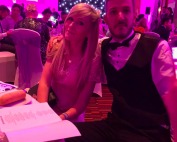Finding new and viable treatments – and that all elusive cure – for mitochondrial diseases, plays an important part in the foundation’s aims. To ensure we find pioneering research projects, and gain the very best knowledge and expertise available to help better support those affected with mito, we are working with experts in the field of mitochondrial medicine from around the world.
We are honoured to be working with:
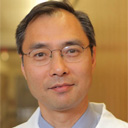
Michio Hirano, MD
Dr. Hirano received his BA from Harvard College and MD from the Albert Einstein College of Medicine. At the Columbia University Medical Center (CUMC), he completed his neurology residency training and a post-doctoral fellowship in neuromuscular genetics under Drs. Salvatore DiMauro and Eric Schon.
Currently, Dr. Hirano serves as Chief of the Neuromuscular Division, Co-Director of the CUMC Muscular Dystrophy Association clinic, and Director of the H. Houston Merritt Center for Muscular Dystrophy and Related Diseases. He evaluated patients with myopathies and other neuromuscular disorders.
Dr. Hirano’s research focuses on mitochondrial diseases and genetic myopathies. He is participating in the clinical trial of idebenone for MELAS patients. Together with Co-Principal Investigators, Drs. Salvatore DiMauro and J.L.P (Seamus) Thompson, Dr. Hirano is co-directing the North American Mitochondrial Disease Consortium (NAMDC).
Dr. Hirano serves on the NIH Therapeutic Approaches to Genetic Diseases (TAG) study section, Medical Advisory Committee (MAC) of the Muscular Dystrophy Association, and Scientific Advisory Board of the United Mitochondrial Disease Foundation.
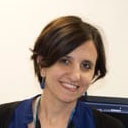
Caterina Garone, MD, PhD
Caterina is a Clinical Geneticist with a medical degree and PhD in Human Genetics. She has been awarded a European Commission Marie Curie Individual Research Fellowship that allows Caterina to establish her research career in Europe. Caterina is working on a project to discover new mitochondrial disease genes and proteins in patients, which is a key steps towards the development of new treatment strategies. The results will impact on research in mitochondrial disorders and will expand her interest in other neurodegenerative disorders.
Caterina’s previous research, carried out in the USA, was focused on the identification of molecular defects associated with impaired mtDNA metabolism, the elucidation of the underlying pathomechanisms and the development of new treatment strategies.
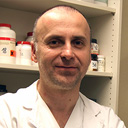
Dr Ramon Martí
I initiated my work in the field of mitochondrial disorders caused by defects in the metabolism of nucleotides as postdoctoral research scientist in Prof. Hirano’s laboratory, at Columbia University. In this period I worked in the first characterization of the biochemical imbalances of mitochondrial neurogastrointestinal encephalomyopathy (MNGIE). I published the biochemical diagnostic algorithm for MNGIE and participated in other important molecular findings related to this disorder, such as the somatic mutations in mitochondrial DNA (mtDNA) and the generation of an animal model for the study of this disease.
After my incorporation at the University Hospital Vall d’Hebron, in Barcelona as principal investigator in 2003, my research focus expanded to other mitochondrial disorders caused by defects in nucleotide metabolism, such as MNGIE, TK2 and dGK deficiency or uridine metabolism in HIV infection.
In the last 5 years, my research work has dedicated significant efforts to elucidate basic biochemical mechanisms underlying the disorders caused by mitochondrial DNA replication defects, which could help finding novel therapies. We have obtained relevant results indicating that gene therapy can be a plausible therapy for MNGIE, and so we have obtained orphan drug designation and protocol assistance for an adenoassociated vector to treat this disease. We also demonstrated that limited availability of deoxyribonucleoside triphosphates ( dNTP) is a common mechanism accounting for mtDNA depletion in MNGIE and other forms of mtDNA depletion syndrome. Based on these and other results, we proposed the administration of nucleosides as treatment of this group of mitochondrial disorders. At this point, our most immediate objectives are to enable clinical trials to demonstrate the efficacy of these approaches to treat mitochondrial disorders caused by mitochondrial DNA replication defects.
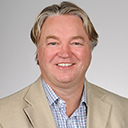
Dr Stephen A. Duncan
Stephen Duncan was born in Glasgow, Scotland, UK, and studied Molecular Biology at the University of Glasgow. He received his Ph.D./D.Phil. from Oxford University in 1992 for working on the mechanisms that control transmission of the poxviruses with Dr Geoffrey Smith. He then moved to The Rockefeller University in New York City to undertake a postdoctoral fellowship in the laboratory of Dr. James Darnell where he studied transcriptional regulation of liver development. He completed his fellowship in 1996 after which he became an Assistant Professor at the Rockefeller University. He transferred to the Medical College of Wisconsin, Milwaukee in 1997, where he moved through the ranks to become the Marcus Professor in Human and Molecular Genetics in the department of Cell Biology, Neurobiology and Anatomy. In 2007 he accepted a position as the founding Director of MCW’s Program in Regenerative Medicine. In 2015 Dr. Duncan relocated to the Medical University of South Carolina in Charleston, where he is currently the Chair of the Department of Regenerative Medicine and Cell Biology. Research in the Duncan Lab focuses on the use of mice and stem cells to understand the contribution of transcription factors to embryonic development and function of the liver. His group has developed technologies to control the differentiation of pluripotent stem cells into hepatocytes. Researchers in his laboratory have exploited this system to model rare diseases in hepatic metabolism and mitochondrial function and as a platform for drug discovery.


